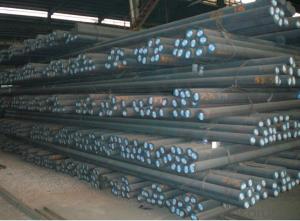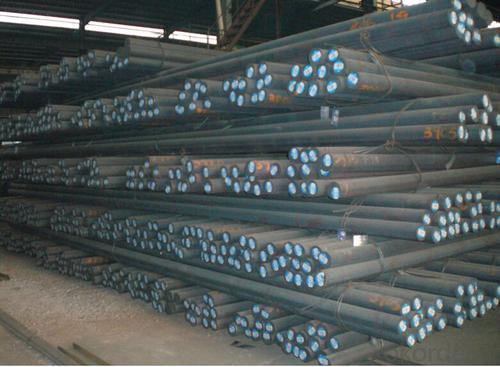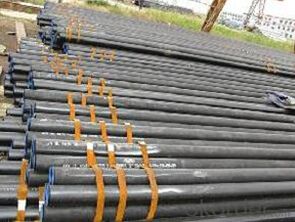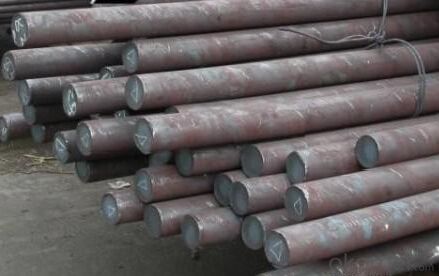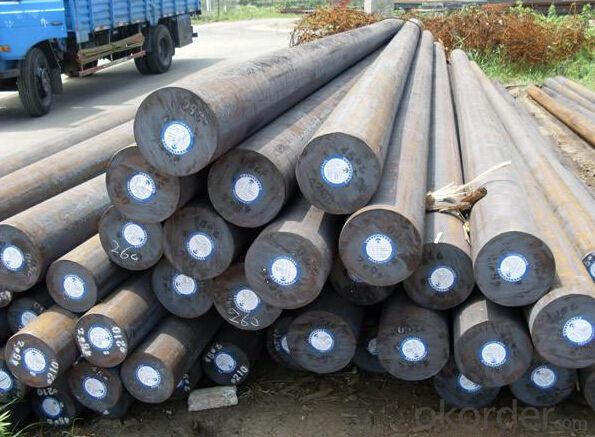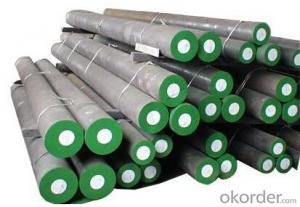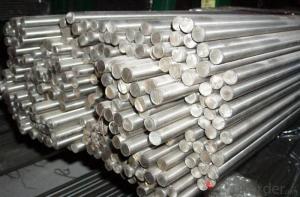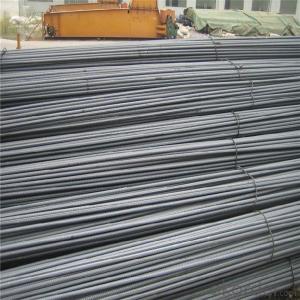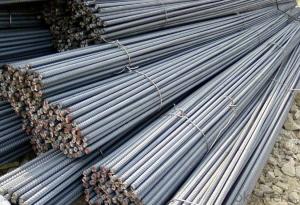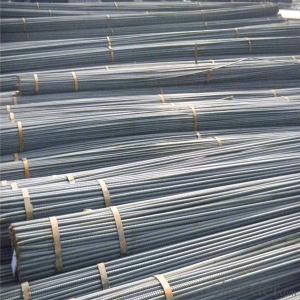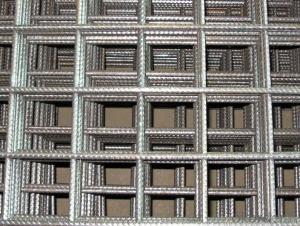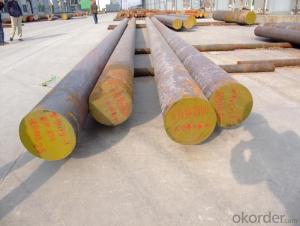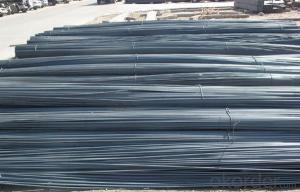Dia5-50mm Deformed Steel Rebar/Reinforcing Steel Bars/Iron Rod
- Loading Port:
- Qingdao
- Payment Terms:
- TT OR LC
- Min Order Qty:
- 5 m.t.
- Supply Capability:
- 100000 m.t./month
OKorder Service Pledge
Quality Product, Order Online Tracking, Timely Delivery
OKorder Financial Service
Credit Rating, Credit Services, Credit Purchasing
You Might Also Like
Specification
Type:
Carbon Steel,Spring Steel,Bearing Steel,Gear Steel,Deformed Steel,Stainless Steel,Alloy Steel
Shape:
Steel Coil,Steel Sheet,Steel Wire Rod,Steel Flat Bar,Steel Square Bar,Steel Angle,Steel Round Bar,Steel Billets
Technique:
Hot Rolled,Cold Rolled,Cold Drawn,ERW,Forged,Saw,Extruded,EFW,Spring
Surface Treatment:
Galvanized,Coated,Copper Coated,Color Coated,Oiled,Dry,Chromed Passivation,Polished,Bright,Black,PVDF Coated
Certification:
ISO,SGS,BV,IBR,RoHS,CE,API,BSI,UL
Thickness:
5-50mm
Width:
5-50mm
Length:
6-12m
Outer Diameter:
5-50mm
Net Weight:
100
Packaging:
seaworthy packaging
Dia5-50mm Deformed Steel Rebar/Reinforcing Steel Bars/Iron Rod
Detailed Information of Dia5-50mm Deformed Steel Rebar/Reinforcing Steel Bars/Iron Rod
| Name | Steel Round Bar |
| Shape | Round Bar/Square Bar/Flat Bar/Plate/Wire |
| Standard | GB/ASTM/SAE/AISI/DIN/JIS/EN/BS |
| Surface Treatment: | Black/Peeling/Polished/Machined |
| Delivery Condition: | Hot Rolled or Forged/Peeled or Black Surface |
| Test | SGS/UT 100% Elements Testing |
| Certificate: | ISO/Mill Certificate |
| Service: | 24 hours online service / |
| more than 20 years trading and manufacture | |
| Quality Assurance: | the third party inspection, such as SGS, BV, TUV…etc. is acceptable |
| Packaging Details: | Seaworthy Packaging or as per customer's packing instruction |
Product Overviews of Dia5-50mm Deformed Steel Rebar/Reinforcing Steel Bars/Iron Rod
| Product Name | Typical Grades | Diameter(mm) | Standard Adopted |
| Carbon Steel | 20 (1020/S20C/C22) | ||
| 40 (1040/S40C/C40) | Ø16-Ø300 | ||
| 45 (1045/S45C/C45) | |||
| Bearing Steel | GCr9 (51100/SUJ1) | ||
| GCr15 (52100/SUJ2/100Gr6) | Ø12-Ø250 | ||
| GCr9SiMn (A485-Gr.1/SUJ3) | GB/SAE/ | ||
| Cr-Mo Steel | 20Cr (5120/SCr420H/20Cr4) | JIS/DIN | |
| 40Cr (5140/SCr440/41Cr4) | Ø12-Ø250 | ||
| 42CrMo(4140/SCM440/42CrMo4) | |||
| Gear Steel | 20CrNiMo | ||
| 20CrMn(5115/SMnC420/20MnCr5) | Ø16-Ø600 | ||
| 20CrNiMo(8620/SNCM220/20CrMiMo2) |
Company Introduction of Dia5-50mm Deformed Steel Rebar/Reinforcing Steel Bars/Iron Rod
CNBM International Corporation is the most import and export platform of CNBM group(China National Building Material Group Corporation) ,which is a state-owned enterprise, ranked in 270th of Fortune Global 500 in 2015.
With its advantages, CNBM International are mainly concentrate on Cement, Glass, Iron and Steel, Ceramics industries and devotes herself for supplying high quality series of refractories as well as technical consultancies and logistics solution.
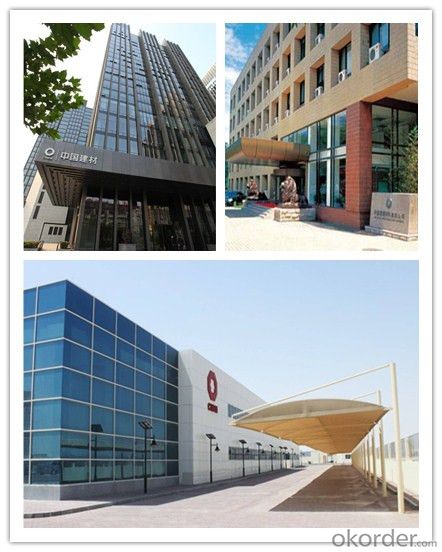
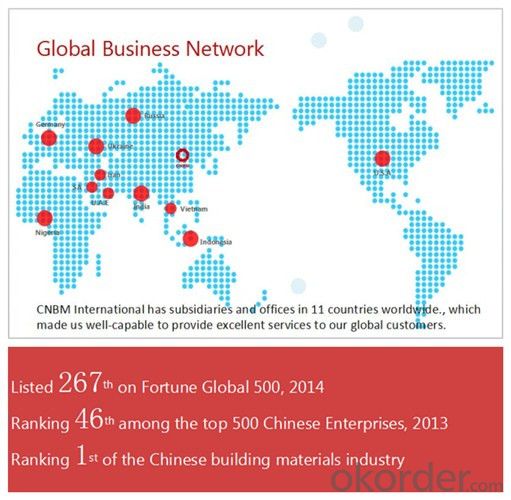
| After-sale service | l CNBM provides the services and support you need for every step of our cooperation. We’re the business partners you can trust; you can relax and get on with doing business. |
| l For any problem, please kindly contact us at any your convenient time, we’ll reply you in our first priority within 24 hours | |
| Advantages | l Industry experience over 20 years. |
| l Shipment of goods -More than 70 countries worldwide. | |
| l The most convenient transport and prompt delivery. | |
| l Competitive price with best service. | |
| l High technical production line with top quality products. | |
| l High reputation based on best quality products. | |
Packaging & Delivery of Dia5-50mm Deformed Steel Rebar/Reinforcing Steel Bars/Iron Rod
| Packaging Detail | Sea worthy packing /as per customer's packing instruction |
| Delivery Detail | 15 ~ 40 days after receiving the deposit |
Products Show
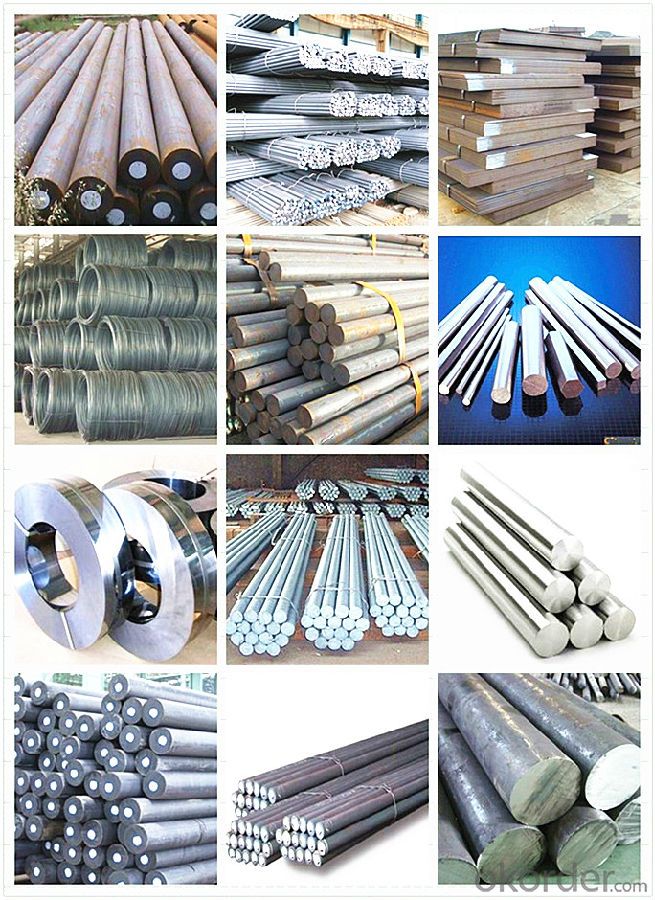
FAQ:
| Are you a trading company or manufacturer? | Manufacturer |
| What’s the MOQ? | 1000m2 |
| What’s your delivery time? | 15-20 days after downpayment received |
| Do you Accept OEM service? | Yes |
| what’s your delivery terms? | FOB/CFR/CIF |
| What's the Payment Terms? | 30% as deposit,70% before shipment by T/T |
| Western Union acceptable for small amount. | |
| L/C acceptable for large amount. | |
| Scrow ,Paybal,Alipay are also ok | |
| Why choose us? | Chose happens because of quality, then price, We can give you both. Additionally, we can also offer professional products inquiry, products knowledge train (for agents), smooth goods delivery, excellent customer solution proposals. |
| What's your available port of Shipment? | Main Port, China |
| What’s your featured services? | Our service formula: good quality+ good price+ good service=customer's trust |
| Where are your Market? | Covering more than 160 countries in the world |
- Q: What are the different quality control measures for special steel production?
- There are several quality control measures for special steel production, including thorough material inspections, precise chemical composition analysis, stringent dimensional and shape control, non-destructive testing methods such as ultrasonic and magnetic particle inspections, and rigorous mechanical property evaluations. Additionally, heat treatment processes and surface treatments are closely monitored to ensure the desired properties and surface finish of the special steel. Continuous monitoring and quality checks are essential throughout the production process to maintain the highest standards and meet customer requirements.
- Q: What are the different methods of joining special steel?
- There are several methods of joining special steel, each with its own advantages and limitations. Some of the most common methods include: 1. Welding: This is the most widely used method of joining steel. It involves melting the base material and adding a filler material to create a strong bond. Different welding techniques such as arc welding, gas welding, and laser welding can be used depending on the specific requirements. 2. Brazing: This method involves heating the steel and melting a filler metal with a lower melting point, which then flows into the joint by capillary action. Brazing is often used when joining dissimilar metals or when a lower-temperature joining process is needed. 3. Soldering: Similar to brazing, soldering also uses a lower melting point filler material to join the steel. However, soldering involves melting the filler material without melting the base material. It is commonly used for electrical connections and delicate applications. 4. Mechanical fastening: This method involves joining the steel components using mechanical means such as bolts, screws, rivets, or other types of fasteners. Mechanical fastening is often preferred in situations where disassembly or maintenance is required. 5. Adhesive bonding: Special steel can also be joined using adhesives that create a strong bond between the surfaces. Adhesive bonding is suitable for joining complex shapes, reducing stress concentrations, and providing excellent corrosion resistance. 6. Friction welding: This technique involves rubbing or spinning two steel components together under pressure to generate heat, which then creates a bond. Friction welding is commonly used for joining high-strength or heat-treated steels. 7. Explosive welding: This method involves using explosives to create a high-speed collision between two steel surfaces, resulting in a solid-state bond. Explosive welding is often used for joining dissimilar metals or when high strength and corrosion resistance are required. The choice of joining method depends on factors such as the type of steel, the desired strength and durability of the joint, the specific application requirements, and the available equipment and expertise.
- Q: How is special steel used in the production of turbine blades?
- Special steel is used in the production of turbine blades due to its exceptional properties such as high strength, corrosion resistance, and heat resistance. These blades must withstand extreme conditions, including high temperatures and pressures, as well as rotational forces. Special steel provides the necessary strength and durability to ensure the blades can effectively convert kinetic energy into mechanical power.
- Q: What are the specific requirements for special steel used in the textile industry?
- The specific requirements for special steel used in the textile industry are primarily related to its durability, corrosion resistance, and heat resistance. Due to the harsh conditions and high temperatures involved in textile processing, the steel used must be able to withstand these conditions without compromising its structural integrity. Firstly, the steel used in the textile industry must possess excellent durability. It should be able to withstand high mechanical stress, including tension, compression, and bending, without experiencing deformation or breakage. This is important as the machinery in the textile industry undergoes constant movement and repetitive actions. Corrosion resistance is another crucial requirement for special steel in the textile industry. The steel should be resistant to corrosion caused by chemicals, moisture, and other environmental factors. This is especially important as textile manufacturing processes often involve the use of various chemicals and water. Heat resistance is also vital for special steel in the textile industry. As the manufacturing processes involve high temperatures, the steel used must be able to withstand and maintain its strength and properties under these conditions. This ensures the longevity and efficiency of the equipment and machinery used in textile production. Additionally, the steel used in the textile industry should have excellent machinability. It should be easy to cut, shape, and form into various components and parts required for textile machinery. This allows for efficient manufacturing and customization of equipment as per specific needs. Furthermore, the steel may also need to meet specific standards and certifications set by regulatory bodies or industry organizations, ensuring that it meets the necessary quality and safety requirements. For instance, it may need to comply with international standards such as ISO 9001 for quality management systems. In summary, the specific requirements for special steel used in the textile industry include durability, corrosion resistance, heat resistance, machinability, and compliance with relevant standards. Meeting these requirements ensures that the steel can withstand the demanding conditions of textile manufacturing and contribute to the efficiency and reliability of the machinery involved.
- Q: How does special steel perform in high-temperature applications?
- Special steel performs exceptionally well in high-temperature applications. It has excellent heat resistance and can withstand extreme heat without losing its strength or shape. This makes it highly suitable for use in industries such as aerospace, power generation, and automotive, where it is exposed to high temperatures and thermal stress. Additionally, special steel exhibits good oxidation and corrosion resistance, ensuring its durability and reliability in these demanding conditions.
- Q: Can special steel be used in automotive engine components?
- Automotive engine components can indeed benefit from the utilization of special steel. Also referred to as alloy steel, special steel possesses enhanced properties, including increased strength, toughness, and heat resistance. These attributes make it highly suitable for the utilization in critical engine components that endure high temperatures, stress, and wear. Within the realm of automotive engines, special steel finds application in an array of components, such as crankshafts, camshafts, connecting rods, valves, and piston rings. These components encounter extreme conditions, including elevated temperatures, pressure, and rotational forces. Special steel confers the necessary strength and durability to withstand these conditions, consequently ensuring dependable engine performance and longevity. The incorporation of special steel within automotive engine components yields several advantages. Firstly, it heightens the strength and load-carrying capacity of the components, enabling them to handle greater power and torque outputs. Secondly, special steel bolsters the fatigue resistance and durability of the components, thereby diminishing the likelihood of failure and prolonging their service life. Lastly, special steel exhibits the ability to endure the high temperatures and thermal cycling experienced within the engine, thereby averting deformation and upholding dimensional stability. On the whole, the utilization of special steel in automotive engine components assumes paramount importance in the pursuit of attaining optimal performance, reliability, and longevity. It guarantees that the engine can endure the demanding conditions under which it operates, ultimately granting a smoother and more efficient driving experience.
- Q: What are the main factors affecting the heat resistance of special steel?
- The main factors affecting the heat resistance of special steel include its alloy composition, microstructure, and heat treatment. Alloy composition plays a crucial role in determining the heat resistance of special steel. The addition of specific elements such as chromium, nickel, molybdenum, and tungsten can enhance the steel's ability to withstand high temperatures. These alloying elements form stable oxide layers on the surface of the steel, which act as a barrier against oxidation and corrosion at elevated temperatures. The microstructure of special steel also influences its heat resistance. The steel's grain size, distribution of phases, and the presence of precipitates can affect its thermal stability. Fine-grained structures and a homogeneous distribution of phases help improve the steel's resistance to creep, which is the deformation that occurs under prolonged exposure to high temperatures. Additionally, the presence of precipitates, such as carbides or intermetallic compounds, can provide strengthening mechanisms that enhance the steel's resistance to thermal softening. Heat treatment processes, such as quenching and tempering, can significantly impact the heat resistance of special steel. Proper heat treatment can optimize the microstructure and enhance the steel's mechanical properties, including its resistance to thermal degradation. For instance, a well-controlled quenching process can promote the formation of a martensitic structure, which increases the steel's hardness and strength at high temperatures. Other factors that can affect the heat resistance of special steel include the presence of impurities, surface conditions, and environmental factors. Impurities, such as sulfur and phosphorus, can reduce the steel's resistance to high temperatures by promoting the formation of brittle phases or facilitating oxidation. Surface conditions, such as roughness or the presence of cracks, can lead to localized heating and accelerated degradation. Environmental factors, such as the presence of corrosive gases or high humidity, can also influence the steel's heat resistance by promoting oxidation or corrosion processes. In summary, the heat resistance of special steel is influenced by its alloy composition, microstructure, heat treatment, impurities, surface conditions, and environmental factors. Understanding and optimizing these factors are crucial for developing special steel with superior heat resistance for various industrial applications.
- Q: What are the different heat treatment methods used for special steel?
- There are several heat treatment methods used for special steel, including annealing, quenching, tempering, normalizing, and case hardening.
- Q: What are the different methods for quenching special steel?
- Achieving the desired mechanical properties and improving the hardness and strength of special steel requires a critical step in the heat treatment process known as quenching. There are several methods available, each with their own advantages and considerations. One commonly used method is oil quenching, where the steel component is submerged in oil to act as a cooling medium. This provides a moderate cooling rate, allowing for controlled and uniform hardening. It is suitable for a wide range of steel grades and helps prevent cracking or distortion. Water quenching, on the other hand, is a faster cooling method compared to oil quenching. It extracts heat rapidly, resulting in higher hardness and strength. However, the high cooling rate can increase the risk of cracking or distortion, especially with thicker sections. Water quenching is commonly used for low-alloy steels and some high-alloy steels. Polymer quenching involves using a specialized polymer solution as the cooling medium. This method offers a controlled cooling rate, striking a balance between the slower oil quenching and faster water quenching. It is particularly suitable for steels with complex shapes or critical dimensions, as it reduces the risk of distortion and cracking. Air quenching, on the other hand, is a slower cooling method that allows the steel component to cool in ambient air. It is typically used for steels with lower hardenability, providing a more gradual cooling rate. While it helps reduce the risk of distortion and cracking, it may result in lower hardness and strength compared to other quenching methods. Finally, salt bath quenching involves immersing the steel component in a molten salt bath as the cooling medium. This method provides a controlled and uniform cooling rate, minimizing the risk of distortion and cracking. It is particularly suitable for complex-shaped or delicate parts, as it reduces thermal stress during cooling. It is important to consider various factors, such as steel grade, desired hardness, component size and shape, and required mechanical properties when choosing a quenching method. Proper selection and implementation of the method are crucial to achieving the desired material characteristics and ensuring the overall quality of the special steel product.
- Q: Are there any disadvantages of using special steel?
- There are several disadvantages associated with the use of special steel. To begin with, special steel tends to be more expensive compared to regular steel. This is primarily due to the additional alloying elements and heat treatments involved in its production, which contribute to the higher cost. As a result, it may not be the most cost-effective option for applications where cost is a major factor. Furthermore, special steel may have limited availability in comparison to regular steel. It is often produced in smaller quantities and may only be obtainable from specific suppliers. This can lead to longer lead times and difficulties in sourcing the required amount of special steel, particularly for large-scale projects. Additionally, the increased complexity of working with special steel can pose challenges. It may require specialized knowledge, skills, and equipment for handling and processing. If the necessary expertise or resources are not readily available, this can result in higher manufacturing costs and potential delays in production. Moreover, some special steel grades with high strength and hardness can be more prone to brittleness. This means they may be susceptible to cracking or breaking under certain conditions, especially when exposed to extreme temperatures or sudden impact loads. This limitation can be a disadvantage in applications that require high toughness or resistance to fracture. Lastly, special steel may have limited applications due to its specific properties. While it offers advantages such as corrosion resistance, high temperature resistance, or improved mechanical properties, these benefits may not be relevant or necessary for every application. Consequently, using special steel in such cases may incur unnecessary expenses without any tangible benefits. In conclusion, special steel has its drawbacks, including higher costs, limited availability, increased complexity, potential brittleness, and limited applicability. Therefore, it is crucial to carefully consider the specific requirements of a project before opting for special steel.
Send your message to us
Dia5-50mm Deformed Steel Rebar/Reinforcing Steel Bars/Iron Rod
- Loading Port:
- Qingdao
- Payment Terms:
- TT OR LC
- Min Order Qty:
- 5 m.t.
- Supply Capability:
- 100000 m.t./month
OKorder Service Pledge
Quality Product, Order Online Tracking, Timely Delivery
OKorder Financial Service
Credit Rating, Credit Services, Credit Purchasing
Similar products
Hot products
Hot Searches
Related keywords
